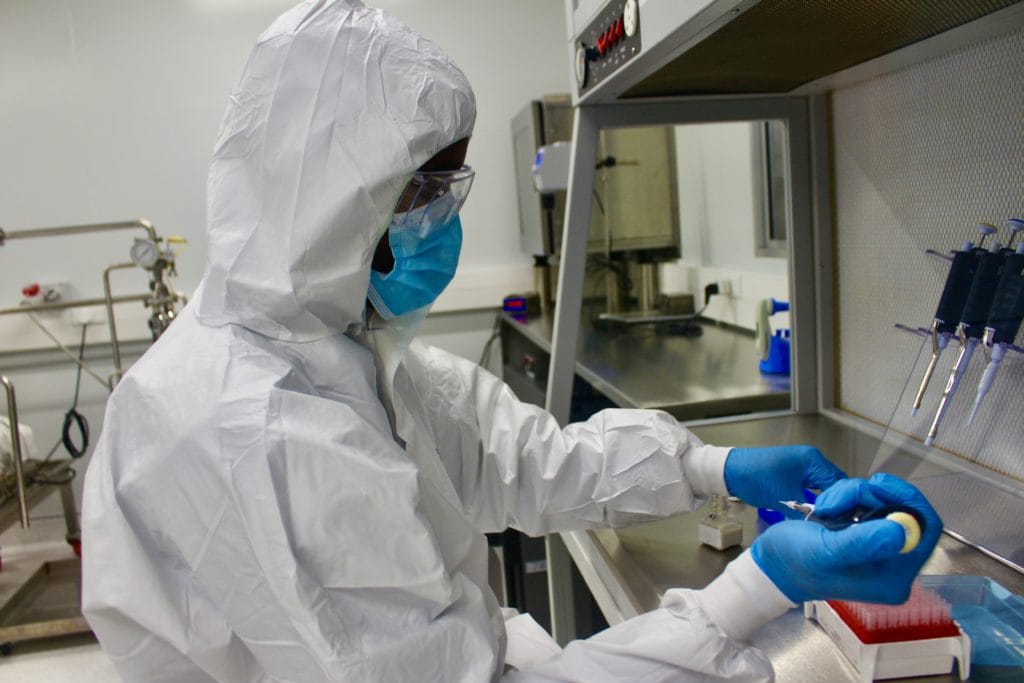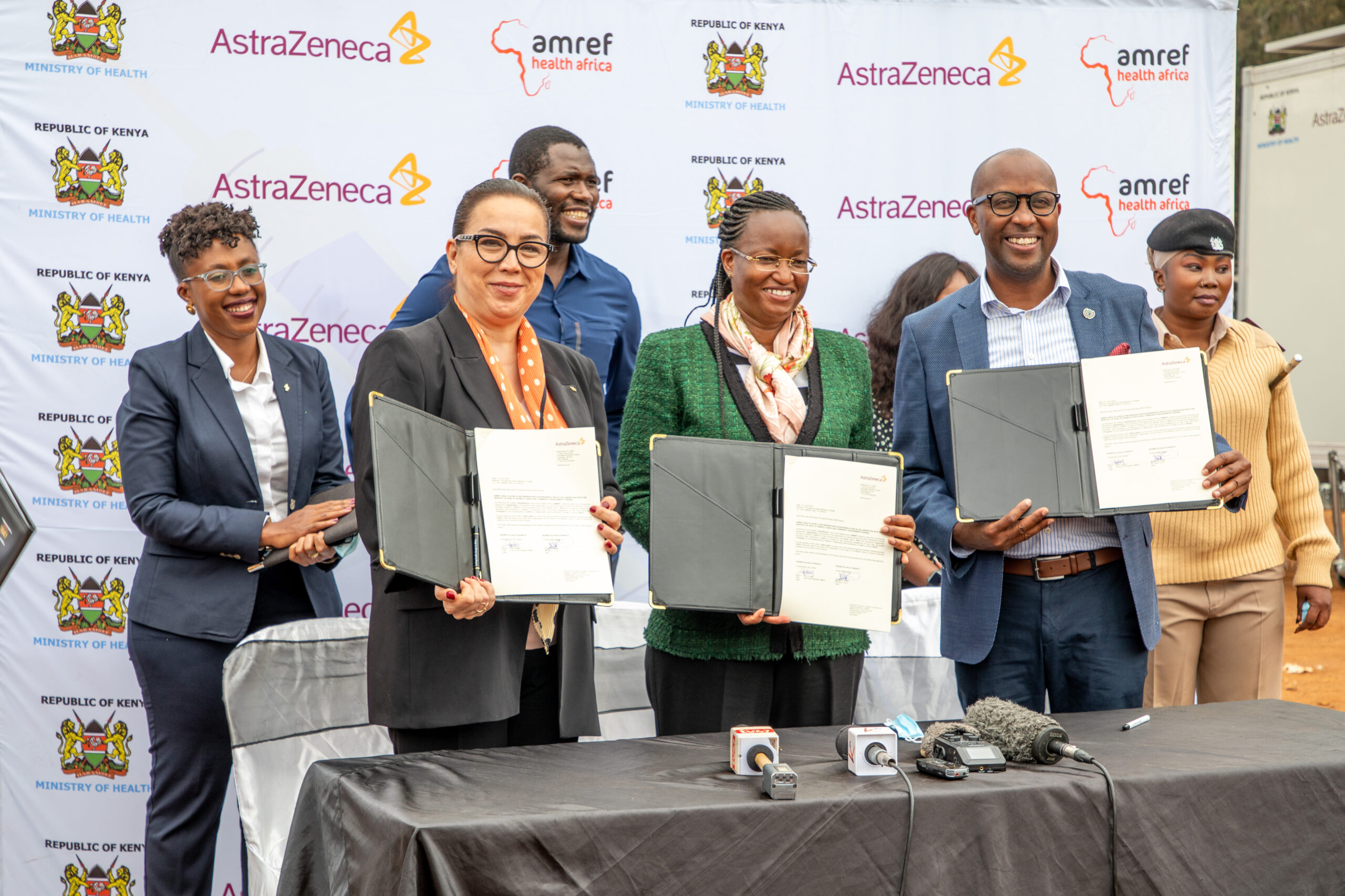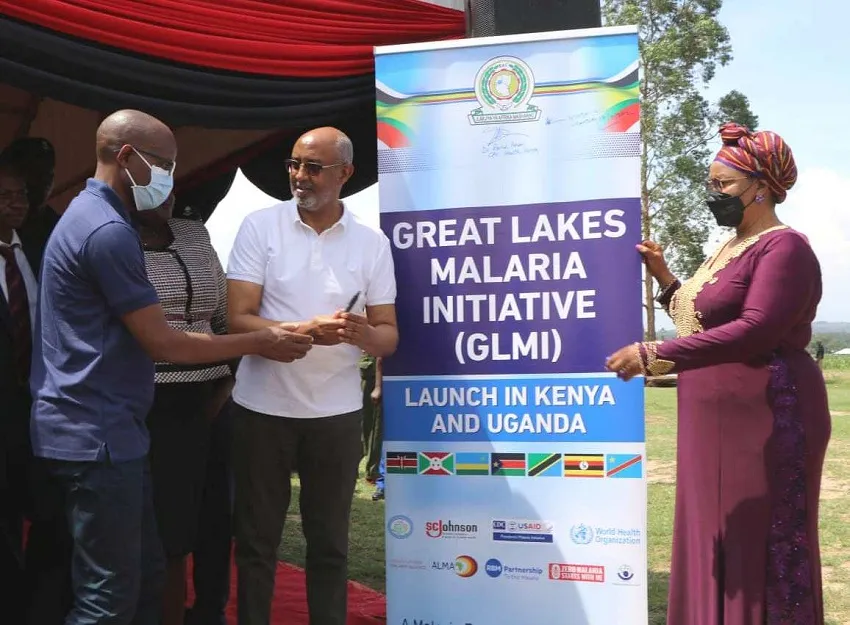World Health Day: CHWs not Volunteers for Universal Health Coverage in sub-Saharan Africa
Saturday, 7 April, 2018

Dr Githinji Gitahi, Amref Health Africa Group CEO
April 7, 2018, Nairobi, Kenya: The World Health Organization (WHO) is celebrating World Health Day today under the theme of “Universal Health Coverage (UHC): everyone, everywhere.” This year WHO is also marking its 70th Anniversary and the global health community is celebrating 40 years of the Alma-Ata Declaration on Primary Health Care and Health for All.
The commemoration of this year’s World Health Day with its focus on UHC presents the ideal opportunity for African leaders to reflect on commitments made to advance health for all.
While a commendable number of African countries has integrated UHC as a goal in their national health strategies, there remains a huge challenge in translating these commitments into equitable and quality health services for their citizens.
Achieving UHC everyone, everywhere calls for, among other initiatives, investment in human resources for health.
Countries in sub-Saharan Africa still face a huge shortage of health workers with an average of only 1.1 health workers per 1,000 population, against the recommended minimum of 2.3 per 1,000 and far less than the 4.45 per 1,000 estimated as necessary to achieve the global Sustainable Development Goals (SDGs) and UHC. It is important to note that these recommended minimums for health workers are broad, and don’t address the specific needs of individual countries in sub-Saharan Africa. Each country will have its own requirements for the total number of health workers it needs, and the specific mix of health workers, depending on the health challenges faced by its citizens.
Involvement of community health workers has emerged as a necessary strategy for addressing this shortfall in human resources that hinders the attainment of UHC in many countries.
Community health workers are the key to enabling equitable access to health promotion, disease prevention and use of curative services at the household level in addition to improving demand and quality of health services, reducing waiting times at clinics, and reducing the workload of doctors and nurses.

Patricia a Community Health Worker in Kenya.
But there is a need to provide appropriate training, supervision and remuneration for community health workers to enable them to tackle existing and emerging health challenges, such as non-communicable diseases, mental health, violence and injury. Community health workers also need to be integrated into sufficiently resourced health systems.
Amref Health Africa has been involved in training of midlevel and community health workers through in-service, pre-service and continuing professional development since its founding in 1957. Between 2011-2015 alone, the organisation trained over 700,000 health workers in Africa through a variety of approaches using traditional and technology-enabled education and training methods, such as eLearning and mLearning for health.
Despite the crucial service they provide in communities with limited access to health care, community health workers remain unpaid in many African countries and receive varying levels of training. This has resulted in a high attrition rate of community health workers, estimated to be up to 77per cent. Such a high turn-over within the ranks of community health workers could reverse the gains made in improving health systems across Africa and weaken efforts to attain UHC. Studies show that compensation and training opportunities for community health workers are strongly correlated to higher job satisfaction and intent to stay, while poor living and working conditions are disincentives.
Ethiopia, South Africa, Nigeria, Malawi and Rwanda are examples of countries in sub-Saharan Africa that have national community health worker programmes which integrate them into the health care system and offer a sustainable career path. More countries need to follow their lead.
On its part, Amref Health Africa will continue to work with governments in Africa and the global health community to fully integrate community health workers into the health workforce so that they can reach their full potential and help drive attainment of UHC.







